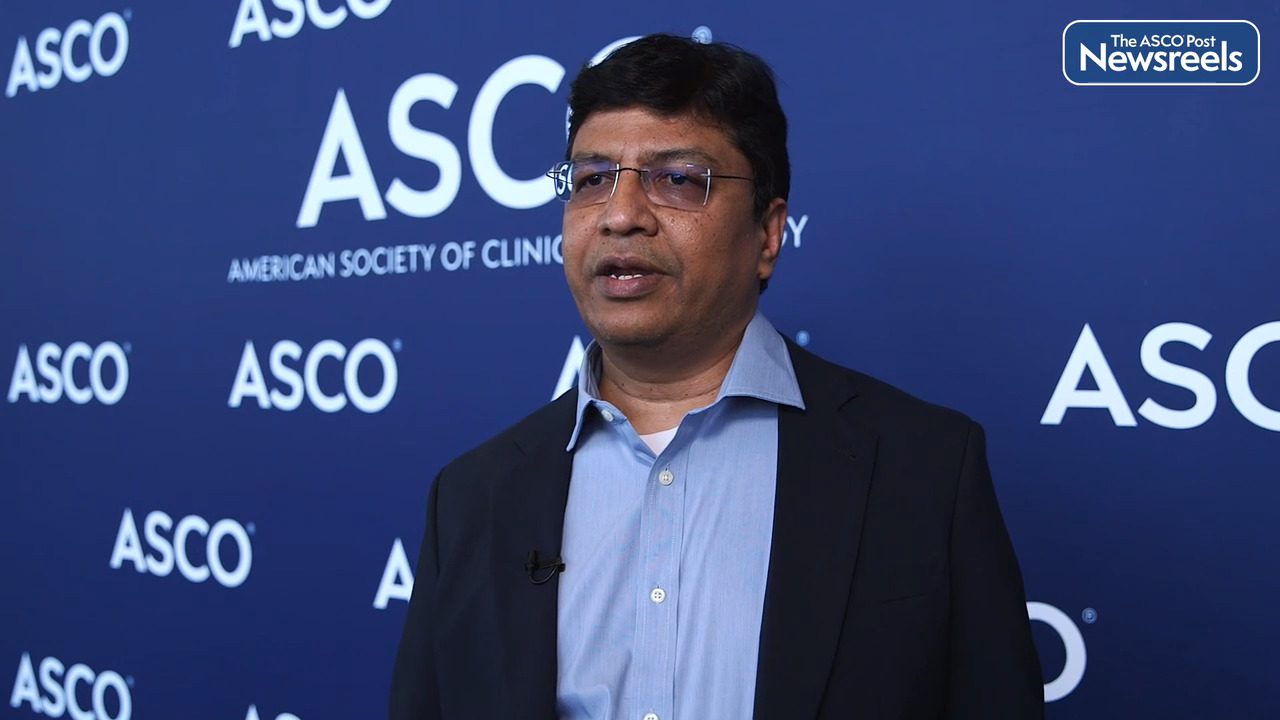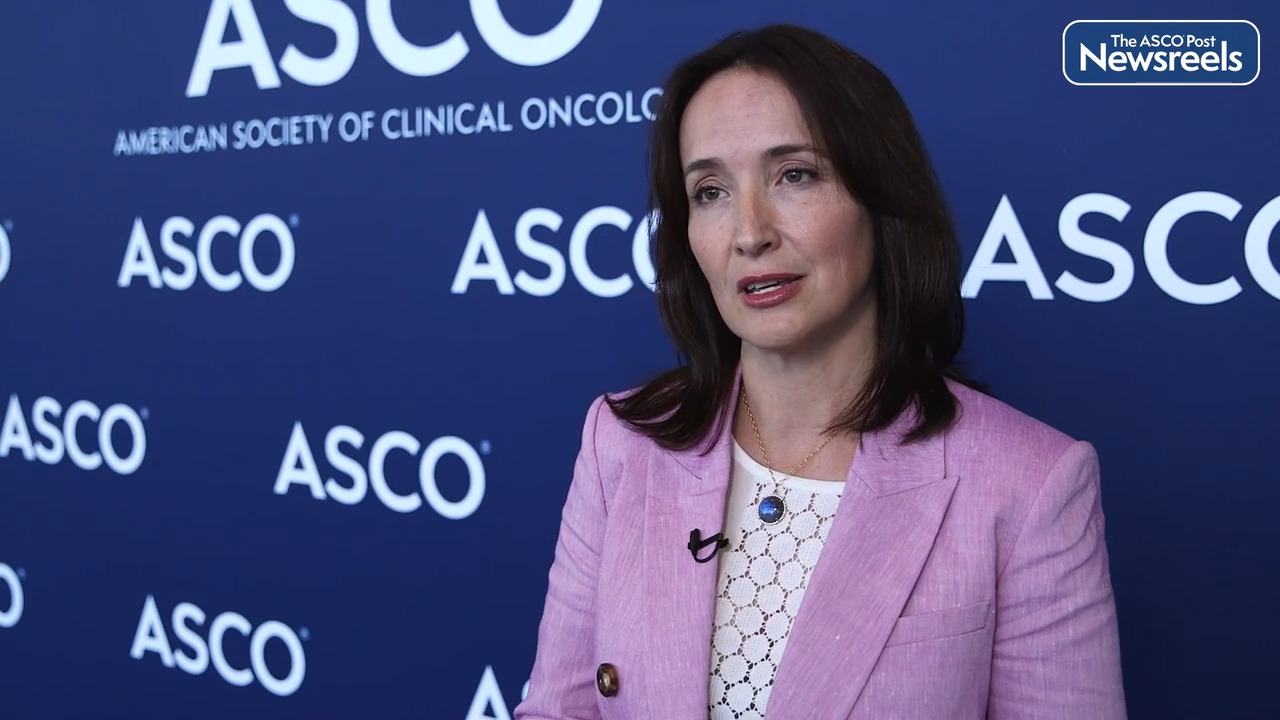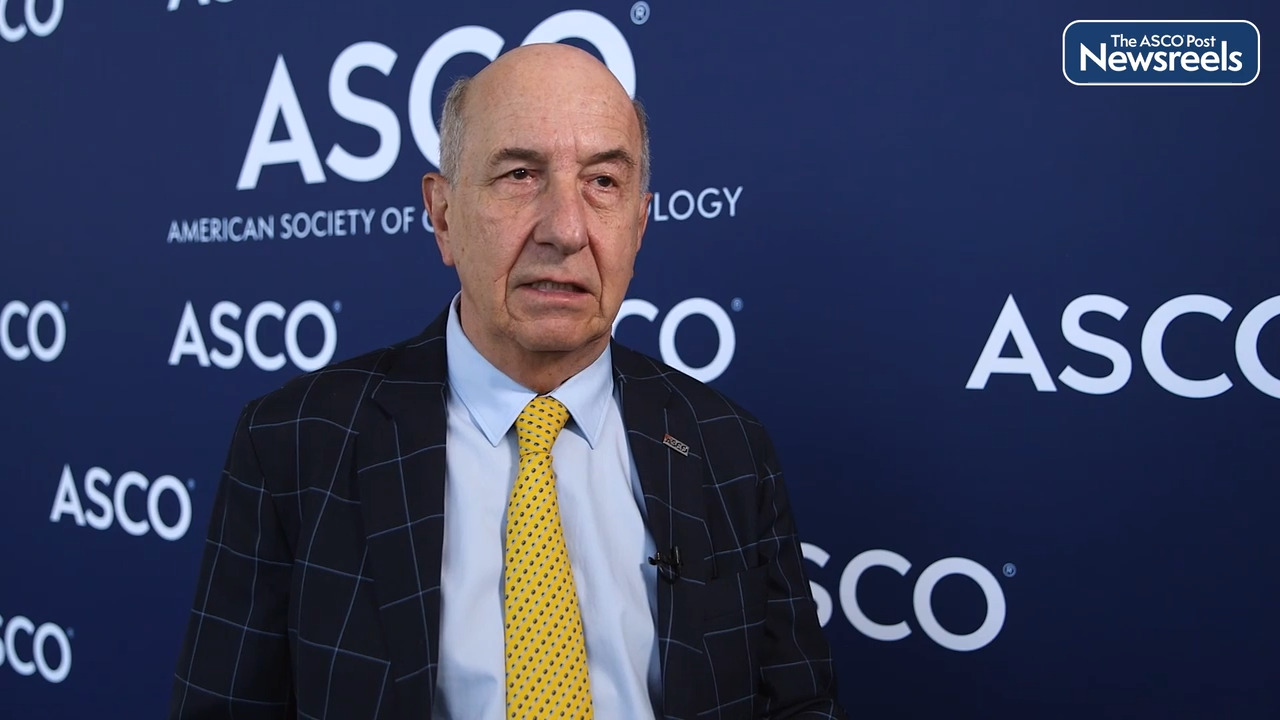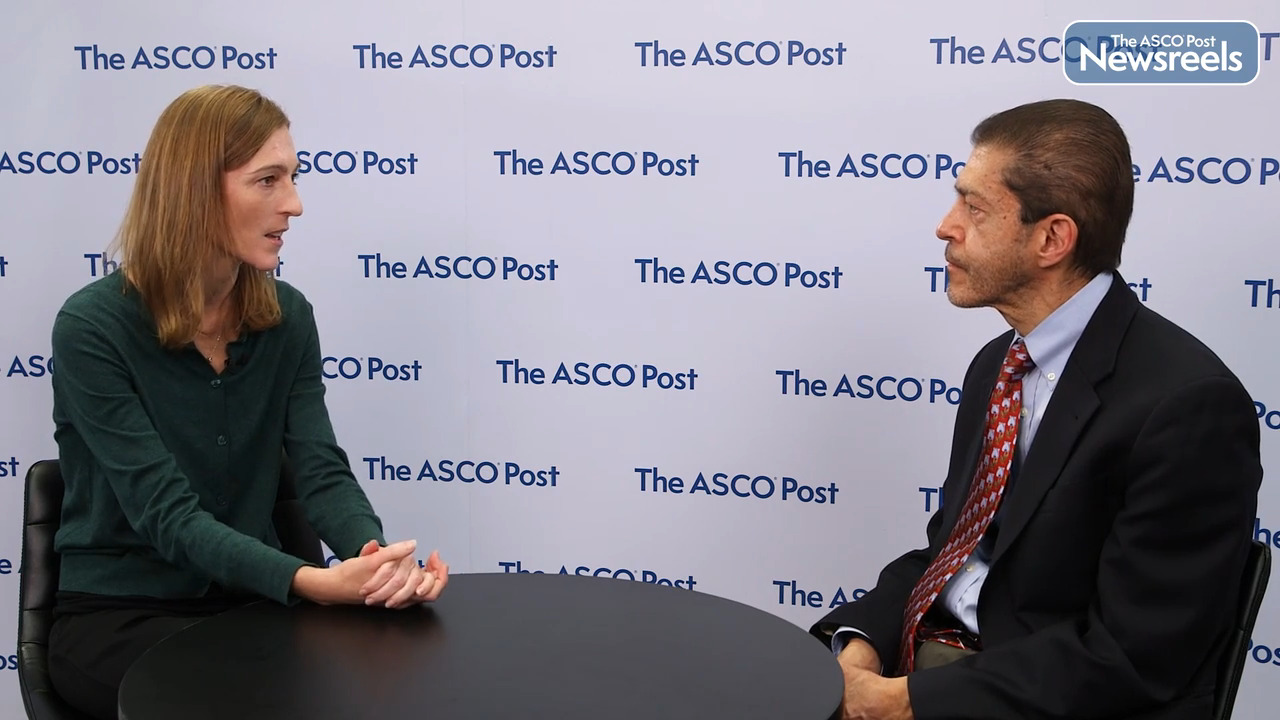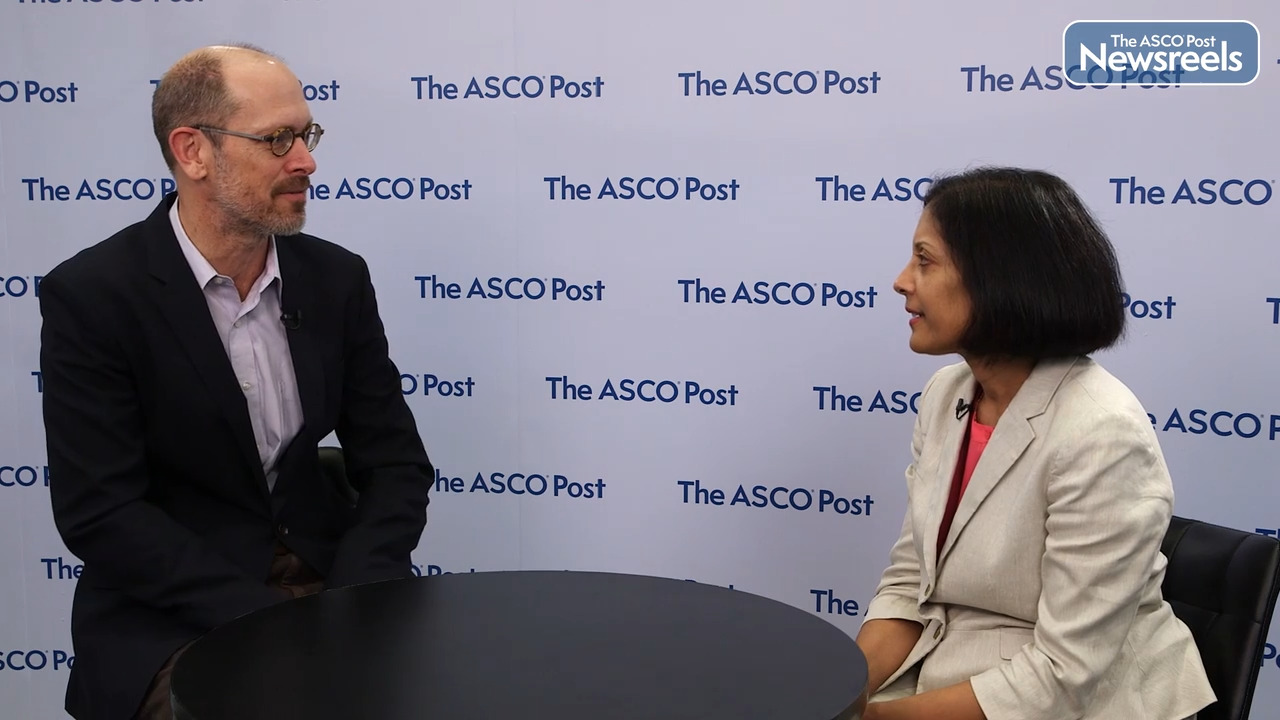Transcript
Disclaimer: This video transcript has not been proofread or edited and may contain errors.
This is a phase two single R multicenter clinical trial of the combination of pembrolizumab and cabozantinib. As you very well know, pembrolizumab is approved as first line therapy for patients with recurrent metastatic head and neck squamous cell carcinoma that exhibit biomarker positive disease, namely a CPS score more than one. And historically the response rate to pembrolizumab has been hovering around 18%. And this, if you look at the different studies, basically is 18% up to 20% in patients with high CPS score.
So this trial of this combination attempted to look at improvement in overall response rate when we use the combination. And the trial accrued both at Emory University and Moffitt Cancer Center, it screened 50 patients. 36 patients were enrolled and received therapy. And 33 patients at the time of the last analysis were evaluable for response. Out of these 33 patients, we had 18 patients achieve a partial remission, which is a high number, meaning that 54% of patients achieved a partial remission. This number is significantly higher from single agent pembrolizumab. When we look at the numbers, as I said, 18 to 20% has been the percent responders on single agent pembrolizumab.
What's also interesting in this study is the fact that patients overall tolerated the treatment well, despite the fact that 17 patients had those reductions of cabozantinib from 40 milligrams to 20 milligrams, those reductions abrogated the side effects. Most of the side effects were related to either of the agents, mostly cabozantinib at 40 milligrams, where patients had symptoms of mucositis, some patients had hand foot syndrome, dysphasia related to mucositis. And most of these essentially were abrogated when we reduced cabozantinib.
The interesting finding also is that there were very few early progressors. In other words, we saw three out of the 33 patients who had progression of disease as their best response. Looking at the responders, basically those included HPV positive as well as HPV negative disease. The trial had about 47% of patients as HPV positive oral phalanx cancer, which is what you would expect in a recurrent metastatic trial these days in North America. But there was no signal that the responders were enriched in HPV positive versus HPV negative. They basically included both patient populations. Also looking at the CPS score, even though there was a trend in improved overall survival with the higher CPS score, this trend did not reach statistical significance.
What is also very interesting is the data on progression free survival and overall survival. When we look at this data and attempt to use keynote 048 as the comparator, even though the term comparison should not be the case here since they're not head to head comparisons, however, there was no early drop in the progression-free survival like what we would see on with single agent pembrolizumab. Even if you look at the patients on 048 who had a CPS core more than 20, which basically benefited the most from single agent pembro, at six months you had a progression free survival rate of about 30% which compares to about 70% on the combination therapy on this trial.
Overall survival was also very good on the study in this patient population with a one year overall survival exceeding 60%. Looking at biomarker positive patients, those patients with CPS core more than 20 had a one year overall survival of about 86%, which is really impressive. We're still looking at other biomarkers. We looked at CDAT cell infiltration in the baseline biopsies, and these seem to be correlating with response. However, more data is needed, of course, to try to decipher what are biomarkers that actually correlate with overall response and clinical benefit.
When we looked at clinical biomarkers and correlated them with overall survival, it seems like econ performance status came up as a parameter that correlated with overall survival, significantly. However, none of the other parameters such as primary site of disease or HPV status or CPS core correlated, even though there was some trend favoring higher CPS score.
So I think to put it in perspective, this is really a departure from what we are used to seeing with single agent PD1 inhibitors in this disease. This clinical data really is, I think, ushering a new era in the management of recurrent metastatic disease. I think the question is, is this a feature that will be unique to cabozantinib, or is this a feature that encompasses different tyrosine kinase inhibitors. As you know, cabozantinib is a VEGFR inhibitor, but it also affects other parameters and inhibits axl anditam family of receptors. And so it does have immunomodulatory properties besides the fact that it is VEGFR inhibitor. And so do these properties basically contribute to the good results we have seen on this trial and do these properties also contribute to the different side effect profile that cabozantinib may have compared to other tyrosine kinase inhibitors. Because overall, I think this treatment was fairly well tolerated by patients.
And when we talk about patients with recurrent metastatic head and neck cancer, we want to make sure that they get a treatment that is well tolerated since they're going to receive it for quite an extensive period of time, hopefully. And let's not forget also that these patients are pretty affected by the traditional treatment we give initially to them, which include radiation, surgery, chemotherapy. And so I think it is very refreshing to see this data, and I'm very hopeful that this will lead to further improvement in the management of this disease.
